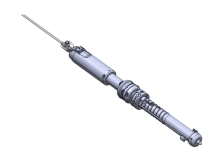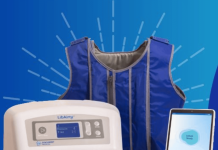Sovato announced it completed a series of remote robotic-assisted surgical procedures using its Sovato remote surgery software platform. Seven surgeons across four specialties performed nephrectomy, hysterectomy, colectomy, and cholecystectomy procedures on pigs as part of the preclinical tests, which took place across about 500 miles between Chicago and Lincoln, Nebraska. The procedures used the Sovanto software platform run on a modified version of Virtual Incision’s MIRA Surgical System.
Related: Noah Medical showcases success of Galaxy surgical robotic system
The preclinical test results and surgeon experience were presented at the Society of Robotic Surgery 2024.
According to Sovato, surgeons completed a user experience assessment, and the results revealed a high degree of confidence while performing the remote procedures. The surgeons also reported the ability to communicate effectively with the bedside assistant and comparable situational awareness of the remote operating room compared to in-person surgery.
“I could not tell the difference between doing surgery in my operating room or in an operating room that was 500 miles away,” Dr. Francesco Bianco, associate professor of surgery in the Division of General, Minimally Invasive & Robotic Surgery Department of Surgery, at the University of Illinois, Chicago, said in a new release. “The experience was seamless. There was no detectable delay. There was absolute comfort in communicating with the team on the remote side. Everything looked like a normal day in my operating room.”
The Sovato Platform enables remote robotic-assisted surgeries and procedures. The company’s remote connectivity and Saas platform are meant to enable the remote surgery ecosystem to work together. The goal is for healthcare providers and robotic-assisted surgery systems to have a curated fiberoptic network, clinical workflows, data and support infrastructure required for safe remote surgery programs.
“Sovato’s position is that the user experience is fundamental to drive adoption. Capturing the surgeon’s confidence in the technology and workflows is everything,” CEO and cofounder Cynthia Perazzo said. “These preclinical tests highlight that with the right tools and supporting infrastructure, remote surgery can mimic, and even improve, the experience for the surgeon and care teams. We are grateful to Virtual Incision’s partnership in making these preclinical tests a success. We share a vision of democratizing access to high-quality surgical care at a much larger scale, and these tests underscore we are on the right path to making this vision a reality.”
According to the company, the platform had low latency and curated fiberoptic connectivity from the surgeon console to control MIRA’s arms. It also had an integrated articulating camera at the remote location to enable full situational awareness. The company said surgeons maintained immersive verbal and visual communication with the remote care team using the Sovato Platform.
“Remote surgery offers the ability for surgeons and healthcare teams to care for patients who may not have access to minimally invasive surgery in many parts of the world,” said Dr. Marty Martino, medical director of gynecologic oncology and robotic surgery at Ascension St. Vincent’s. “To think about a surgeon located in one city and performing a remote surgery more than 500 miles away — all while feeling like you’re right there in person with the patient and care team — is history in the making.”




